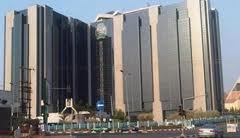HOW TO BECOME A CENTRAL BANK GOVERNOR

Hello ,
My name is Wale, a fresh graduate of Economics from the University of Ilorin. My dream since the day I entered the University has always been to work in the Central Bank of Nigeria and one day become the governor of Central Bank of Nigeria.
I want to make meaningful impact to my country. Sir, I need your mentorship on how to get there, the professional exams I need to write, books I need to read etc. It’s also my desire to work with World Bank or I.M.F. I know I have to start from somewhere.
Also, I once had a dream of becoming a professor before! But because of the low pay I might not be considering academics any longer. I really need your mentorship and advice sir.
Thanks so much sir.
God bless you.
***
Dear Wale,
We shared similar vision as a kid. As a secondary school kid, all my future ambition was to become the governor of Nigeria’s Central Bank. My secondary school friends could testify to this, as I never hesitated to tell them at the slightest opportunity. In fact, that was why I chose economics in my UME and went on to study economics. But along the line, in the university, that vision changed and I no longer wanted to work in any bank at all, not to talk of becoming CBN boss.
But from my readings and knowledge, the following could be helpful in achieving your dream:
1, You have taken the first step by studying economics. I hope you graduated with a minimum of second class upper. Not that you cannot become a CBN governor without having 2.1, you actually can, but 2.1 makes your starting less rough as you stand the chance of getting job in a good institution than if you didn’t. Not studying economics wouldn’t have stopped you either. Let’s look at the courses studied by Nigeria’s current and past CBN bosses for first degree (or equivalent):
- Godwin Emefiele – Finance
- Lamido Sanusi – Economics
- Charles Soludo – Economics
- Joseph Sanusi – Accountancy
- Paul Ogwuma – Accountancy
- Abdulkadir Ahmed – Accounting
- Ola Vincent – Economics
- Adamu Ciroma – History
- Clement Isong – Economics
- Aliyu Mai-Bornu – Economics
You’ve taken the first step by studying economics as majority of the past CBN governors studied economics. In any case, economics is the most relevant field to central banking all over the world.
2, You’re wrong to say you don’t want to become a lecturer. Majority of past CBN bosses were lecturer at a time. Let’s look at those that were once lecturers:
- Godwin Emefiele – Lectured in UNN and UNIPORT
- Lamido Sanusi – Lectured in ABU
- Charles Soludo – Lectured in UNN
- Ola Vincent – Lectured at UI
- Clement Isong – Lectured at UI
- Aliyu Mai-Bornu – Taught at Yola Middle School
You can see that more than half of Nigeria’s past CBN bosses were at a time in academics. If they needed quick money like you, they may not have opted for academics first.
3, For the above reason, and for the fact that economics is a field that is as academic as it is practical, I believe you need solid footing in the field. Hence, consider enrolling for Masters and getting a lecturing job. Sanusi started as a graduate assistant in ABU in 1983 in the department of economics. Soludo lectured almost all his career.
4, Go and enroll for Msc Economics or Msc Finance immediately. First degree in economics alone is hardly useful. The earlier you get it, the better. In the field of economics or central banking, or world banking, Masters degree is the minimum you can get before anyone can even listen to you. World Bank recently advertised some vacancies for Africans, the minimum they asked for was Msc, even for entry level positions. Don’t stop at Msc, go ahead and get a Phd.
5, You can get these degrees from Nigerian universities, especially the first and second generation ones, but if you have the finance or can get scholarship, I advise you go abroad. This doesn’t mean there is anything wrong in Nigerian degrees though, after all, Charles Soludo’s degrees are all home-made.
6, Of all the past CBN bosses, only one was drawn directly from academics – Charles Soludo. Others later left academics for industry (banking) before they got the CBN top job. I am generally a fan of academics meeting industry, even if one wants to remain in academics. The best lecturers are those that have worked in companies in the past. So, after some years in the academics, whether after your Msc or PhD, I advise you get job in a good financial institution, locally or overseas. Still, if you decide to remain in academics – which is not bad – network to get consulting jobs with top institutions. Yes, there are lecturers that are also consultants. Soludo was, for many years, even while still lecturing.
7, That said, it is not compulsory that you must lecture, or that, lecturing is the only medium through which you can have solid understanding of the dynamics of economics. Some of the best economists and central bankers the world over hit industry straight from school and only did the their Msc and Phd while still working. So that advice may be ignored if you wish. But getting minimum of Masters is a must – whether from lecturing or from working. PhD is also strongly recommended.
8, You must never stop reading. You need to follow global economic events. You need to write and contribute to economic discourses. You need to follow business news, subscribe to business publications. You need to be visible. There are many outfits that will publish your analyses and insights, make use of them. Read profiles and biographies of top financial and economic experts around the world. That may also be helpful, at least as a motivation.
9, Anywhere you find yourself – academics or industry – network, build relationships. Attend conferences. Deliver lectures. Never take anyone for granted. It may be your student that may end up recommending you for decision makers at CBN, IMF or anywhere. It may be your writings that will recommend you. Be strategic.
10, Watch out for openings in these institutions and apply.
On professional exams, I don’t think you need any professional exams. What you need are academic qualifications and quality experience. If you decide to get a professional certification, some of the CBN bosses of old – Joseph Sanusi & AbdulKadir Ahmed – had accounting professional qualifications (ICAN/ACCA), but I don’t think you need it as it doesn’t take detract your chances.
In the final analysis, this is not cast in stone. There is no straight path to achieving one’s goal.
I wish you the best.
Jarus
UPDATE (29.09.15): I posted this on LinkedIn and one of my respected followers contributed this, which I find valuable enough to update this post:
By Oyakhilome Wallace Ibhagui, PhD
Jarus, this is an exhaustive response to your mentee’s question despite the fact that it’s difficult to respond to such a question when there is very little or no established pattern. Well done. I’d just add that in the last 11 years, none of the appointed (non-interim) CBN Governors rose through the ranks from within CBN. They were all appointed from outside of the system. In fact, since the start of Nigeria’s new democratic dispensation in 1999, four people have headed the Apex Bank. Of these four, three were appointed from outside the CBN and only Joseph Sanusi rose through the ranks from within. Thus, if recent trends are anything to go by, your mentee may want to prove themselves as a successful technocrat elsewhere, make the right contacts and positioning (as already stressed in the article), build the right relationships and have faith. Relationships matter a lot in top appointments, and this is not restricted to any section of the world. There is a plethora of references to prove this. Finally, with the recent surge in advanced degree holders of Nigerian origin in and outside of Nigeria, I’m beginning to believe that a PhD will soon become the new minimum academic requirement for the position of CBN Governor in Nigeria. I agree that this is untrue for other kinds of professional jobs in Nigeria, at least in the medium term, but the advice of earning a PhD for anyone who hopes to become Nigeria’s CBN Governor in the future is without mistake
***
Subscribe free to JarusHub for more articles on careers and mentorship
[subscribe2]
You may also get a copy of my book, THE ROAD TO VICTORIA ISLAND: A PRACTICAL GUIDE TO CLIMBING CAREER LADDER IN CORPORATE NIGERIA
Established in March 2013, JarusHub is a Nigerian information hub with focus on career and management. It is rated Nigeria's most authoritative destination for online career resources. It parades an array of Nigerian professionals who share their career experiences with a view to bridging career information gap and mentoring a generation to success. JarusHub has revolutionised career information and experience sharing in Africa. Whether you're a student, a recent graduate or an established professional, or even an executive, you will always find something to learn on JarusHub. All enquiries to jarushub@gmail.com or 0808 540 4500. Facebook: www.facebook.com/jarushub; Twitter: @jarushub or @mcjarus.
Career Q&A with Jarus: Oil & gas career, poor CGPA
September 17, 2023What is Career Counselling? How to choose the Right Career?
October 24, 2022Career Advice: Play to Your Strength
March 6, 2022
4 comments
Let us have your say by leaving a comment belowCancel reply
Recommended For You
-
ICAN: SELF STUDY OR TUTORIALS?
May 21, 2015 -
ACCA or ICAN …and How Do I Pass?
December 30, 2013 -
Essential Tips to Self-Educate Better
September 14, 2016






Amazing, one wonders why money should be the principal motivator, it can get frustrating along the line though. When the money doesn’t stream in as expected. Good luck to you though.
helo sir,
My name is Joseph Peter, My dream is to become a chartered accountant and also after that am also looking forward to become the governor of CBN.
Please sir, if am to work in the bank, how long is it going to take me to get there
Wow… really helpful.
Thanks so much.
thanks so much…was hoping you could recommend few books that will be useful